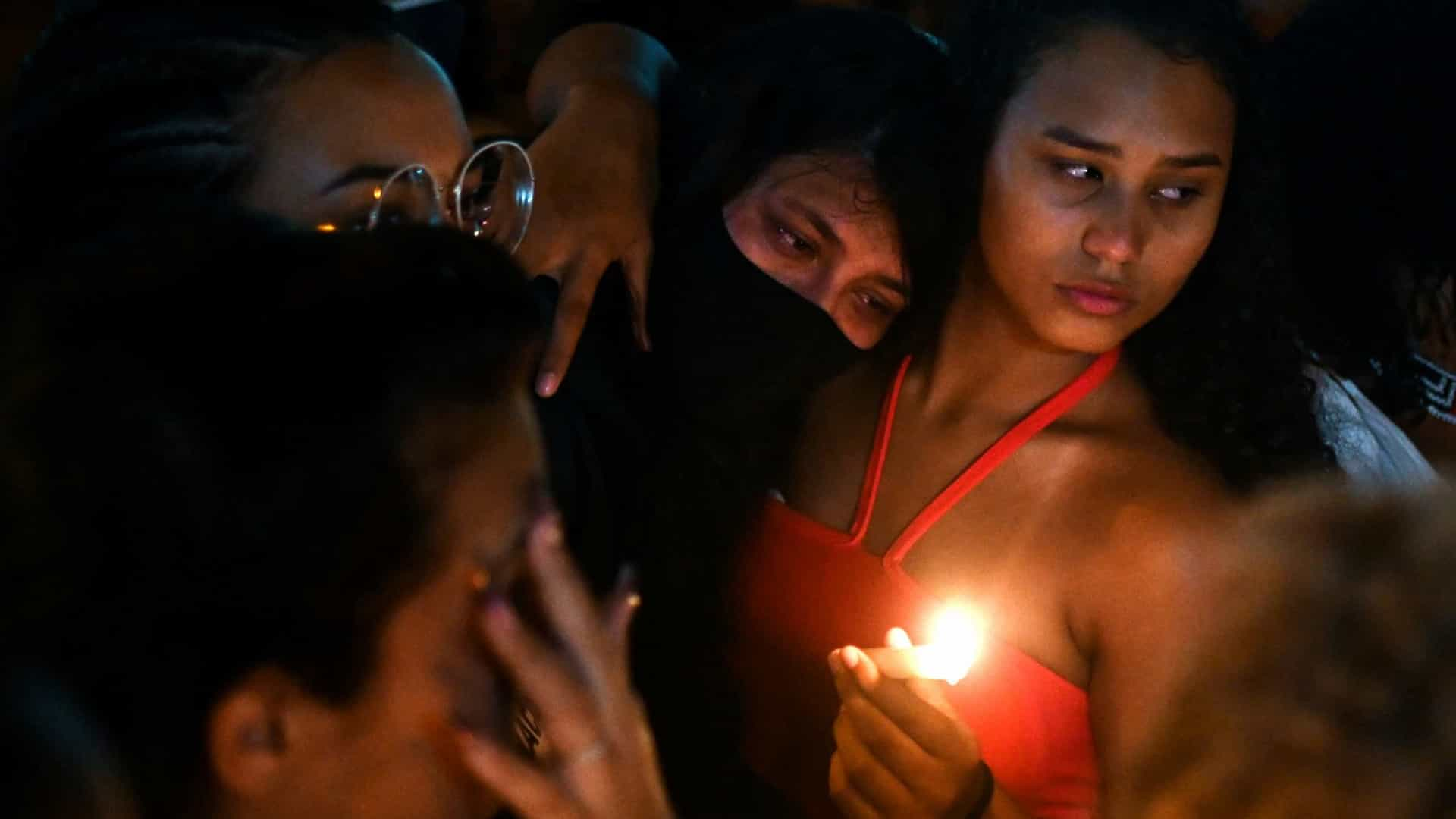RIO DE JANEIRO, BRAZIL – Men arrested in the Civil Police operation that left 29 dead in the Jacarezinho community, a Rio de Janeiro favela, on Thursday, May 6, the most lethal in the history of Rio de Janeiro, reported in a custody hearing having been beaten, threatened and forced by police officers to carry bodies that morning, according to the Public Defender’s Office.
Of the six suspects who were detained, four were accompanied by the public defender’s office during their statements to the judicial authority this Saturday. Of these, three had physical marks of violence and one narrated having seen police officers murdering two men inside a house.

According to the public defender Mariana Castro, coordinator of the Nucleus of Custody Hearings who participated in the hearings, they were in different places and were arrested around 6 am under different circumstances, and all of them claim to have been approached in their own homes or in the homes of relatives.
The agents entered the homes by jumping over walls and slabs or knocking on doors, at which time the men were searched and then tortured. They are between 20 and 30 years old, on average, and their names have not been released.
“They mentioned punches, kicks, pistol strokes, psychological aggression, death threats. They said they were forced to carry bodies which also indicates that there was undoing of crime scenes. One of them also reported that he witnessed the execution of two people held inside a house. They put them there and executed them with rifle shots,” she says.
According to her, one of the prisoners had a black eye and bruises on his legs, another had bruises on his head and arms, a third also had a black eye and bruises on his thorax, and the fourth had no visible marks, although he reported aggressions and demonstrated psychological consequences.
All of them underwent a medical examination at the IML (Forensic Medical Institute), as usual, but some said they had not reported the aggressions at that moment because civil police officers had stayed inside the room with the experts.
For this reason, the judge at the custody hearing ordered that new examinations be done, with no date yet set. The Defender’s Office requested that they follow the so-called Istanbul Protocol, a kind of UN (United Nations) manual that helps detect physical and psychological signs of torture.
“These were accounts of one of the biggest rights violations I have ever seen in my career. The accounts were of a lot of blood, many dead on the floor, carrying bodies, in addition to the psychological and physical aggressions. It was quite shocking”, affirms Castro.
Also, according to her, the suspects narrated those police officers entered all the houses in a certain region. “Regardless of information or warrant. They entered indiscriminately,” she adds.
The operation in Jacarezinho was targeted at 21 defendants accused of association to drug trafficking. The Public Ministry’s accusation against them is based on photos published on social networks. They appear armed but do not mention homicides, enticement of minors, and train hijacking as reported by the Civil Police.
The Civil Police says that it respected the requirements of the STF (Supreme Court), that there were no “executions” or torture, and that all the action was carried out legally, in self-defense. It also says that 25 of the 28 civilians killed had criminal records, and “there is consistent evidence” that the other two were involved in drug trafficking.
The occurrence records of these deaths show that they happened in 12 different community points, with the involvement of 29 police officers in the homicides, under investigation. There is mention of forensics at only two of these locations.
According to several human rights associations, the action was aimed at combating the recruitment of minors by a gang of traffickers but ended up becoming the “biggest police massacre” in the history of Rio de Janeiro.
The Federal Prosecutor General, Augusto Aras, asked the governor of Rio, Claudio Castro, and other authorities of the region to “clarify the circumstances” of the action to view the multiple denunciations of abuses by the agents.
Judge Luiz Edson Fachin of the Brazilian Supreme Court even affirmed having seen signs of “arbitrary executions” in videos he analyzed.
According to reports from neighbors and videos published on social networks, during the operation, the agents invaded homes without judicial authorization, shot surrendered people, and confiscated witnesses’ cell phones.
The Civil Police denied all accusations of abuse and affirmed that they acted in a planned manner and under the prosecutor’s office’s supervision.
Governor Castro said that the action resulted from a “long and detailed intelligence work” that lasted for “ten months”.
Amnesty International and Human Rights Watch (HRW), among other organizations, have condemned this brutal operation, which has outraged the residents of the Jacarezinho favela, who have described it as a “massacre” and “genocide” against the black population.
The United Nations (UN) Office for Human Rights also expressed its concern and denounced possible attempts by the security forces to prevent an independent investigation of what happened.
According to official data, only in the first quarter of this year, 453 people have died at the hands of uniformed officers in Rio.

